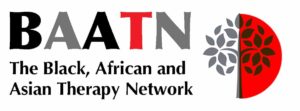
Open Training Event
Culture and Therapy Workshop
Exploring how ethnic identity and cultural values affect the therapeutic alliance, case conceptualisation and ways of being and healing
Dates: Saturday 25th November & Saturday 2nd December 2023
Time: 10:00am – 5:00pm
Venue: 17 Portland Place, London, W1B 1PU
Outline
Working with clients from different Ethnic/Cultural identities to our own has become essential to every job. Similarly, we see clients from different cultural heritage in our therapy rooms. Have you ever wondered whether ethnic identity/identities have any significance within the therapeutic alliance? Western psychotherapy has been built on Euro-centric cultural values. Its focus on independence, individuation, and most essentially sharing through talking, may be contrary to the cultural values of some. In addition, our understanding, and perception of the client, their issues and/or case conceptualization will inevitably be filtered through the lens of our own cultural values.
What do we need to hold in mind when working with clients from different cultural/ethnic identities than our own?
In this two-day training, we will explore British ethnic identity and values and how these affect therapists’ communication styles, ways of being and beliefs about healing. We will discuss ethnic and bi/multi-ethnic identity development and mental health challenges (such as inter-generational conflict, isolation & confusion and discrimination based on culture etc) faced by bi/multi-ethnic people. Finally, we will introduce ways to conceptualise cases based on ethnic/cultural identity theory and ways of working to make the therapy setting more culturally inclusive.
Objectives:
- To explore different cultural values & beliefs; communication styles; ways of being and healing.
- Increase understanding of one’s own cultural identity and cultural values.
- To increase knowledge of ethnic and bi-ethnic identity
- Introduce ways to conceptualise cases based on ethnic/cultural identity theory.
- Develop skills to work in a more culturally inclusive way within the therapeutic setting.
Topics included:
- Definition of Cultural/ Ethnic Identity
- Recognizing British ethnic identity and its values.
- Acknowledging the power and privilege attached to majority group culture.
- Understanding the difference between race and ethnicity
- Group differences in cultural values and beliefs (Individualism/ Collectivism)
- Group differences in communication styles (Direct/ Indirect; High/ Low Culture)
- Group differences in way of being and healing (Indigenous or alternate ways of healing)
- Locus of control and responsibility
- Ethnic/ Bi-ethnic Identity development
- Immigrant mental health and acculturation
- Mental Health challenges faced by people of bi/multi-ethnic identity
- Exploration of indigenous ways of healing
- Skills to be more culturally inclusive within a therapy setting
Who should attend the training?
This is an open training event for Psychotherapists, Counsellors, Psychologists, holistic therapists, psychiatrists and individuals involved in the mental health field, caring professions and those concerned about black mental health.
Facilitators
Dr. Anvita Madan-Bahel, Ph.D. in multicultural psychology
Venue
17 Portland Place, London, W1B 1PU
Programme
Time: 10am – 5pm
Day one: Saturday 25th November 2023
Day two: Saturday 2nd December 2023
NB. PARTICIPANTS ARE EXPECTED TO ATTEND BOTH DAYS.
Cost
£150 Members
£130 Student members
£170 Non-Members
£200 Organisations
(Click here to become a member)
Booking Conditions
- Bookings can be made any time up until Thursday at 5 pm before the day of the event.
- Only the next two upcoming dates will be open for registration at any one time.
- If you have difficulty booking, email the events administrator
- If an event is full, email the events administrator to go on the waiting list. If a place becomes available before 5 pm on the day before the event, priority will be given to those at the top of the waiting list.
-
